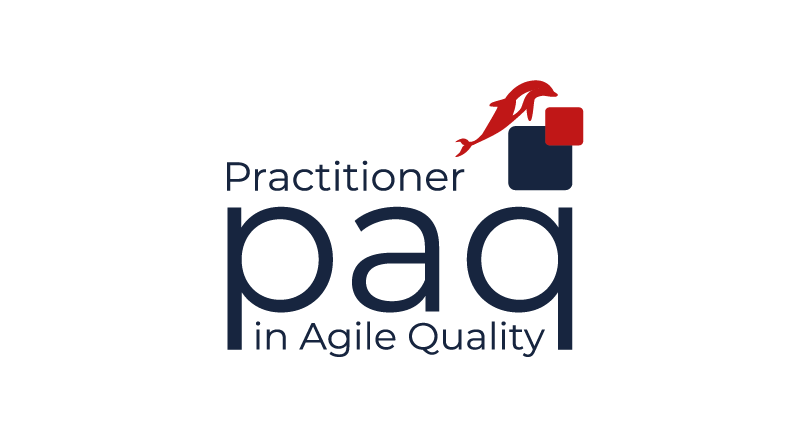Short description
PAQ 2.0 is a practically focused accelerated learning agile certification. It is designed to allow people with current agile knowledge to take their skills to a practitioner level in an intensive learning environment.
PAQ immerses participants in agile practices with an emphasis on the essential competencies needed within high performing agile teams focussed on enhancing value to the business and the customer.
A Practitioner in Agile Quality can use agile as an effective pathway to accelerate the delivery of quality software, since Agile quality is the collective and equal responsibility of the whole team.
The course is designed to inspire and instil confidence in participants through practical application, experiential and collaborative learning. It supports participants to prepare for the PAQ practical assessment (certification exam) which is aligned to the PAQ Competency Framework.
More info can be found on the iSQI website.
Quick info
| Day 1 | Day 2 | Day 3 |
|---|---|---|
|
Introduction
Product Backlog
Planning (Part 1)
|
Planning (Part 2)
Daily Standup
The Iteration
|
Demo
Retrospective
Specialties
Closing Discussion
|
Who might want to attend this course?
- This course requires candidates to meet agile knowledge prerequisites, which can be demonstrated by:
- Holding certifications such as iSQI Certified Agile Essentials (CAE), iSQI Certified Scrum Master Pro, ISTQB Foundation Level Agile Tester
- Having at least two years of professional experience working in Agile
- Additionally, candidates should be proficient in the following practices and techniques:
- Test Design: EP / BVA / State Transition / Decision tables /Exploratory
- Basic test terminology
- Understanding the difference between functional and non-functional testing, including Performance and Usability testing
- Performing all the activities associated with the fundamental test process
- PAQ certification is not limited to testers but also open to anyone in the team who needs to deliver better products, services, and user experiences using agile, including:
- Members of Agile, Scrum, or DevOps teams (Product Owners, Scrum Masters) aiming to improve product quality
- Development team members (Testers, Developers, Business Analysts) looking to apply agile quality approaches
- Managers who want to drive quality and efficiency in agile delivery
Key takeaways
- Agile Quality Mindset: Put into practice all the soft skills appropriate to the Agile Quality Mindset.
- Faster Delivery: Optimize delivery through implementing automation practices feasible.
- Build Quality In, Quality Engineering Principles: Implement the team activities to ensure the product quality objectives for each persona are met from inception (shift left) throughout the product lifecycle. Build the right product, right first time, maximizing business value using repeatable, auditable, and adaptable approaches.
- Scalability: Identify additional quality risks and changes required to effectively scale processes based on team size and/or distribution.




